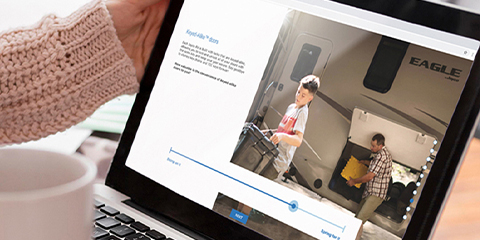We are Ben and Christina McMillan, full time RVers who had never camped a day in our lives when we got into RVing out of pure convenience. Working professional jobs and taking care of a sticks and bricks home was becoming lackluster, even on a good day. The typical American dream left us wanting more fun and less stress. We were always anticipating our next trip, working months and taking a week of vacation or a long weekend here or there.
We wanted to figure out how to own less and have more––so we sold our house and most of our possessions, quit our traditional jobs, and went in search of what else life has to offer. The RVing lifestyle affords us the ability to travel fairly cheaply and in the comfort of our own home. We knew if we couldn't cut it as full-time RVers, we could go back to "normal" lives, but for now we are traveling America, continuing to dream and daring to live the life we want to.
1. What process did you follow to find the right RV for you?
We knew we wanted to go full-time sooner rather than later, so we worked with what we had going for us already. Our top priorities were finding a travel trailer light enough for our current truck to tow, a strong roof to handle solar panels, a bathroom big enough for a composting toilet and a complete setup to comfortably live off-grid for weeks at a time. Our budget was $25,000. We researched all the major brands, read all the reviews and watched countless YouTube videos. After months of research, we settled on a Jayco Jay Feather for ease of parking and maneuverability, with a Murphy bed to maximize living space.
2. What are your best tips for staying prepared on the road?
Use travel apps! For us, our number one concern on the road is finding a place to park for the night and lots of back up options in case something goes wrong. Apps help us find fill and dump stations, too. We use Campendium, Harvest Hosts, Roadtrippers, Passport America, Google Maps, and many more.
We also recommend a roadside assistance plan, plus tools that allow you to take matters into your own hands if you’re in a remote location without cell service. We keep on hand a heavy duty jack, spare tires and enough nonperishable food to last for a few days in case we get stranded. We also have a Tire Minder setup. Knock on wood, we've not had a tire blowout and we think a big reason is because of preventative maintenance like good quality tires, taking care of them and monitoring what's going on with the tires at all times.
To avoid gaps in cell service, we split our phones across two different carriers to maximize coverage.
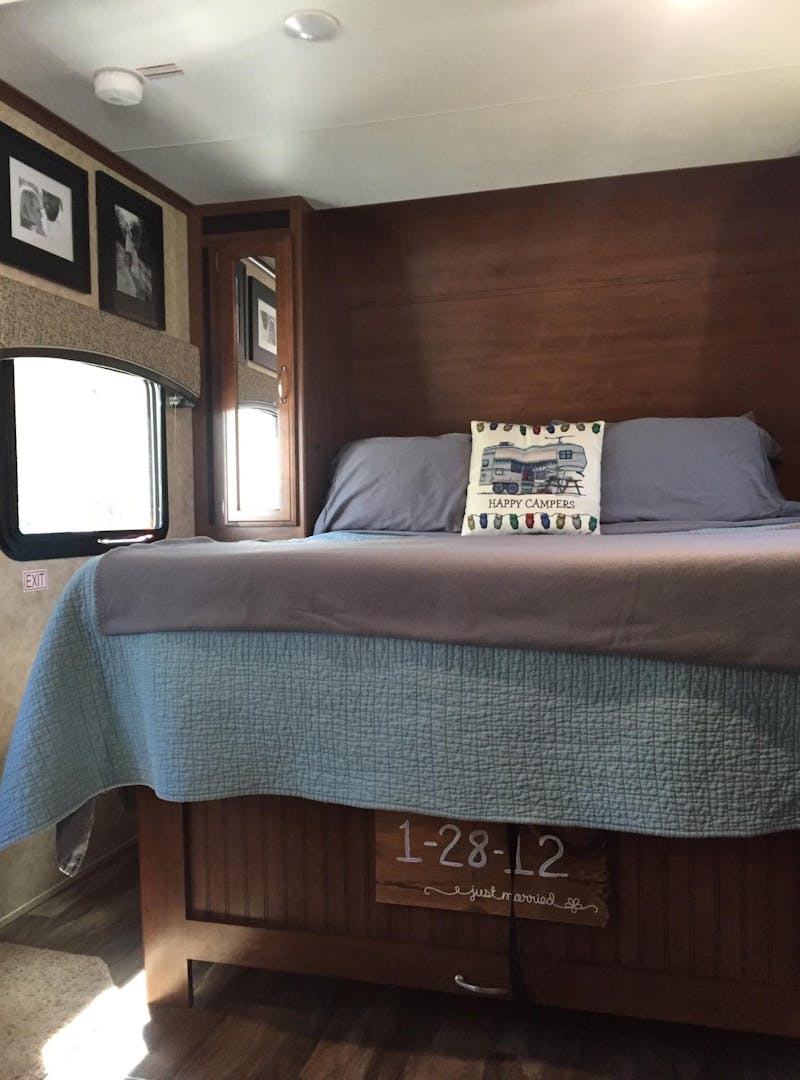
One of the reasons we chose this model was for the Murphy bed which optimizes living space when it’s not in use. It folds right into the wall and a jackknife couch is underneath. We think it’s a great floor plan for full timers or weekend warriors who want a smaller travel trailer with plenty of room.
3. What are your best tips for parking?
Practice. Practice. PRACTICE.
Start in a big, open area like an empty parking lot. Drive around slowly and get the feel for how big your rig is. Then, practice parking in every different direction and angle you can think of, using cones or objects on the asphalt to serve as a pretend campsite. Take your time. Tow mirrors are extremely helpful. A patient partner is even more helpful. And when all else fails, book pull-through sites until you are comfortable parking. But, eventually you are going to have to back that thing up. Practice!
4. Your first road trip was a long one. How did you map the best route?
Our first road trip was from Florida to Maine. We had 11 days to get to our reservation in Acadia National Park. We mapped those first 11 days through the Harvest Hosts app, staying at Harvest Host sites in Georgia, North Carolina, Pennsylvania, New Jersey, Connecticut and Maine, with sites ranging from wineries to farms to a flea market. It was beyond what we could've possibly imagined. The connections we made were unforgettable and they were all places we would love to revisit someday. Even though we traveled over 1,500 miles in 11 glorious days, we tried to take our time and really enjoy the journey. It put us on the fast track to learning how to live off-grid, without hookups. But we were always close to everything we could need, and we met lots of people who gave us tips about RVing.
5. What’s one thing you had to learn on the fly?
Sometimes everything goes according to plan... but we learned how to make backup plans real fast. When plans go awry, it can be overwhelming and heartbreaking––you spend so much time planning every move, and a small setback can totally derail everything. In the first three months we RVed full-time, we missed several reservations due to unexpected mishaps. We nearly ripped our roof off, almost lost our underbelly cover, and learned how to make new arrangements as we went.
If you need to adjust your schedule on the fly, here are some tips. Reservations in state and national parks are hard to come by in the summertime, especially on the weekends. Try to prioritize those bookings if you can when you’re making contingency plans. Otherwise, try not to plan too many consecutive stays, too far ahead. It can actually be counterproductive at times––for instance, we learned that first-come, first-served and free camping options made way more sense for our travel style than having a bunch of fixed stops and reservations. It gave us more freedom to stay longer in the areas we really enjoyed. The longer your trip, the more opportunities there are for the unexpected to happen, so stay sharp and be flexible.
6. What’s one thing you felt confident about that you later realized you didn’t know enough about? What happened?
Our travel trailer is 10 feet, 6 inches high. One day, we trusted a clearance sign listing a certain height as safe to pass through, even though our instincts were telling us we wouldn’t make it. We didn’t have cell reception, so we couldn’t search other routes, and anyway, there’s no way a state traffic sign would be wrong, would it? We lost a solar panel, our ladder and our air conditioning unit, plus caused a bunch of other damages, only to find the correct height was listed on the other side of the bridge. Lesson learned: never trust a clearance sign! Always trust your instincts. Even if the only way to get to your destination is to go hours out of the way, do it.
That day was not one of our best, although no one was hurt, and we were grateful for good insurance and repair shops––but that’s one of the days to taught us not to plan too far in advance, because we did not make our reservation that night.
7. What are your favorite tips for packing the RV for a trip?
If someone would’ve told us this before we left, we would’ve ignored it, but: Don’t over pack. Clutter is your worst enemy in a small space. We promise you will never need those 10 pairs of shoes. You can find everything you need on the road, and if you can’t, you can always order online and have something delivered to a future campsite. There’s no need to worry and pack for every eventuality. Organization is also a must. Grab extra shelves, baskets and containers for keeping things tidy. When you move a lot, everything needs its own place.
8. What do new RVers need to know before they take their first trip?
Don't forget to take your time and enjoy the journey. Always stay alert, but relax and make traveling to the next destination part of the trip. DO stop at the roadside tourist traps. Never pass up a National Park. Ask locals for recommendations for restaurants, hikes and entertainment. Talk to fellow travelers as often as you can. We've learned that the nomadic community is full of the most friendly and amazing people. Research and join some RV forums for help with questions you may have or for travel and camping ideas. Know your rig inside and out. Last but not least, expect the unexpected.
9. What other tips or tricks have you learned along the way?
You can find free camping spots through travel apps! There are more options than just Bureau of Land Management sites, or backwoods locations that make you think you’re in a horror movie. So many actual campgrounds in awesome small towns have free camping opportunities.
We've also learned a lot of water-saving tricks. For instance, get yourself good low-flow aerators for your faucets. You’ll still have good water pressure but it will reduce how much water you use. If you like to dry camp like us, making the water last as long as possible will extend your stay by days, maybe even a week. We can make 60 gallons of tank water (separate from drinking water) last for 14 days without any problem. Another water saving tip is to use a composting toilet, which “flushes” without using any water. We also rely on lots of wipes: makeup wipes, baby wipes, wipes for cleaning and dusting, wiping dishes prior to washing. It saves lots of precious water!
And lastly, you can never have too many leveling blocks. A level rig is key for keeping everything running smoothly, including the fridge.
10. What’s been the best part about being new RVers?
One word: camping. We became RVers to see America as frugally as possible. We wanted to eliminate monthly bills and the need for full time jobs (at least temporarily). We pursued a simple, modest lifestyle. So we never set out to pursue camping itself, we just wanted to find the most affordable way to take a temporary break from "normal life" before we settled down again. But within the first few months, it was clear that camping and enjoying the surrounding landscapes was something that filled a hole in both of us that we didn't know was missing. We'd never even heard the term nomad or identified as people who might enjoy camping. So now, as we continue our journey, we’re always looking to find the next place to camp and enjoy what surrounds us.
Ben and Christina travel in a Jayco Jay Feather.

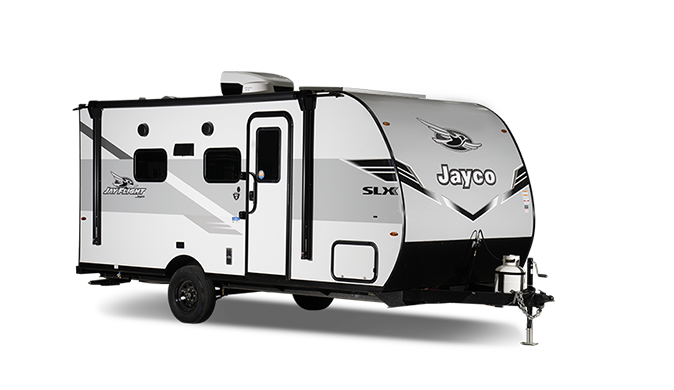
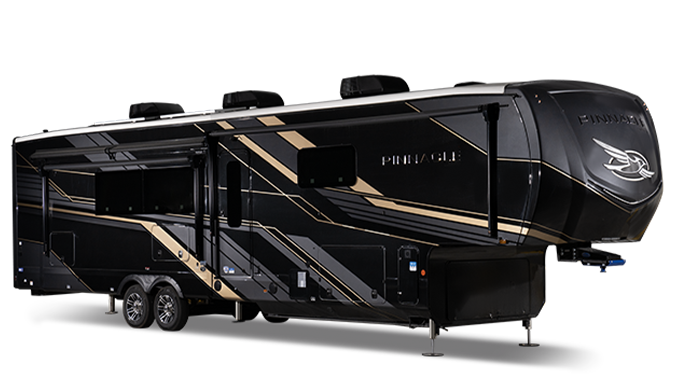
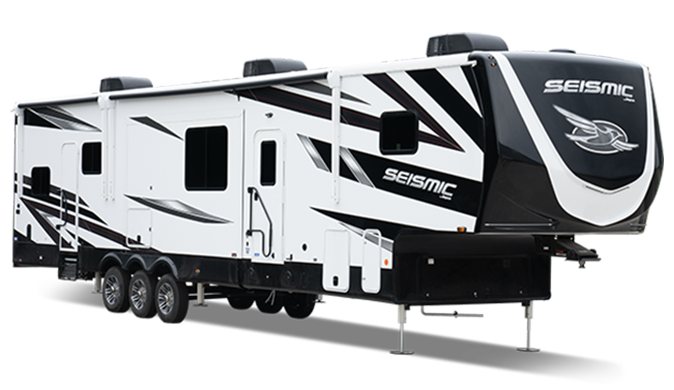
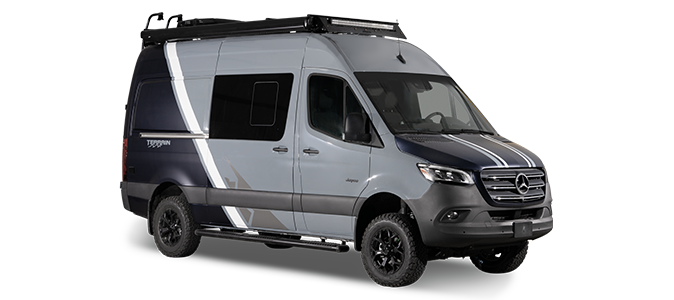
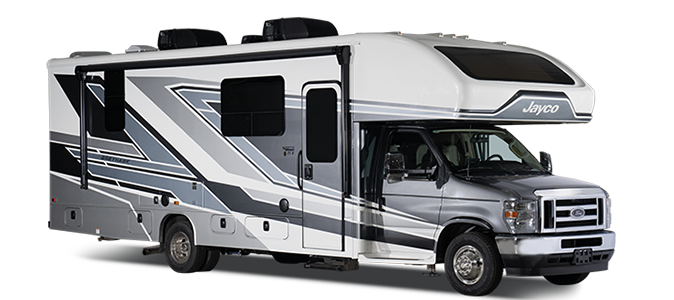
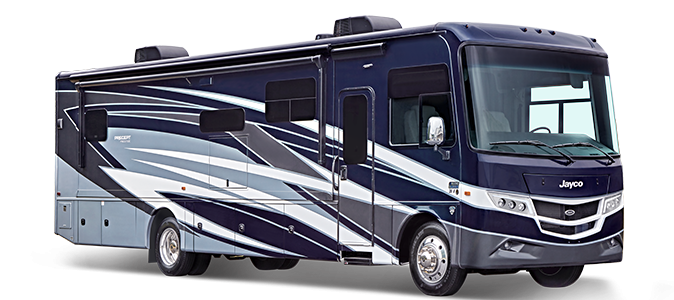
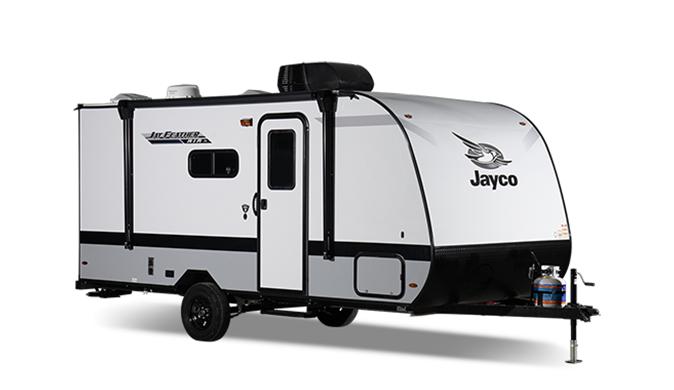
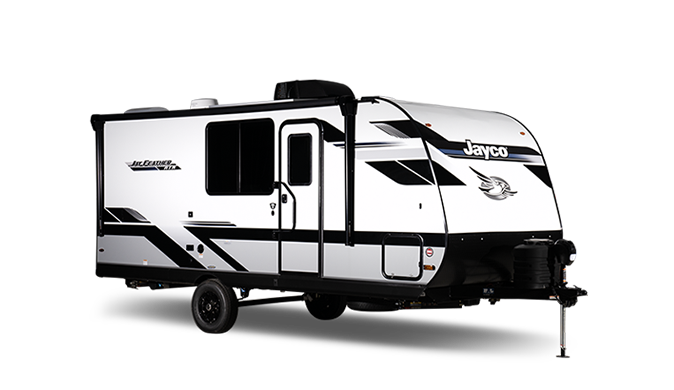

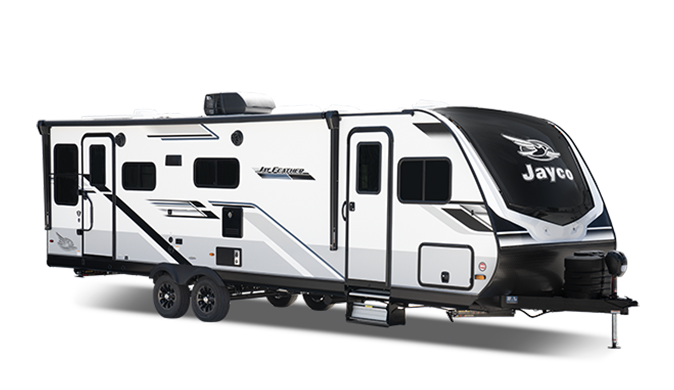
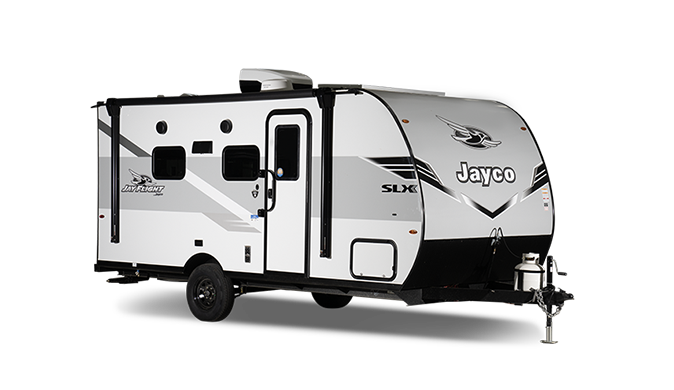
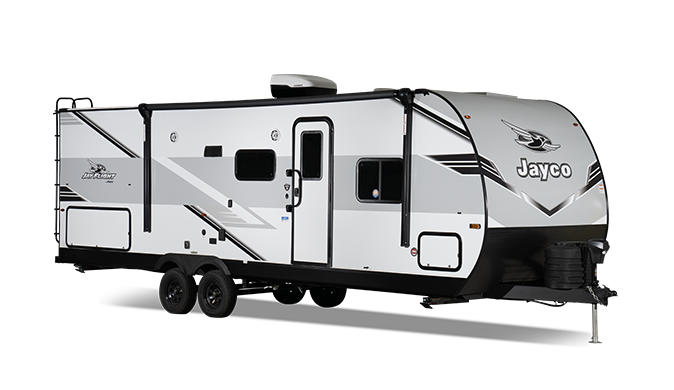
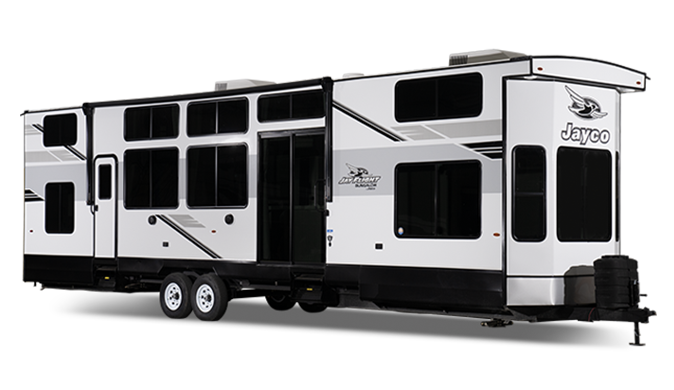
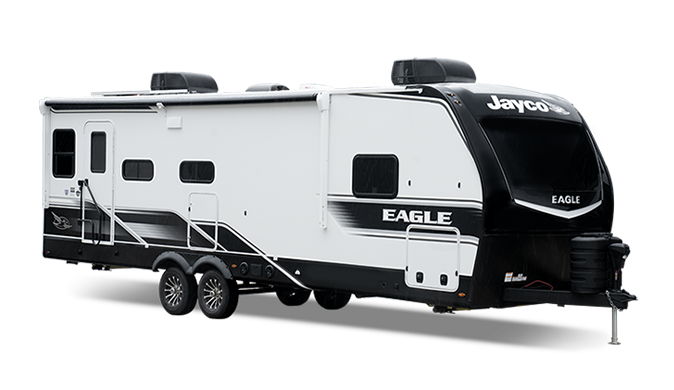
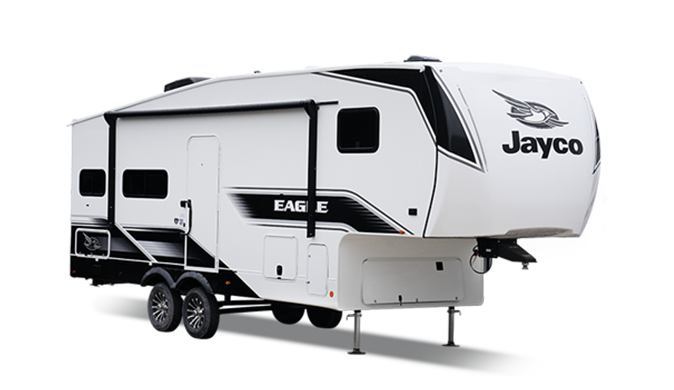
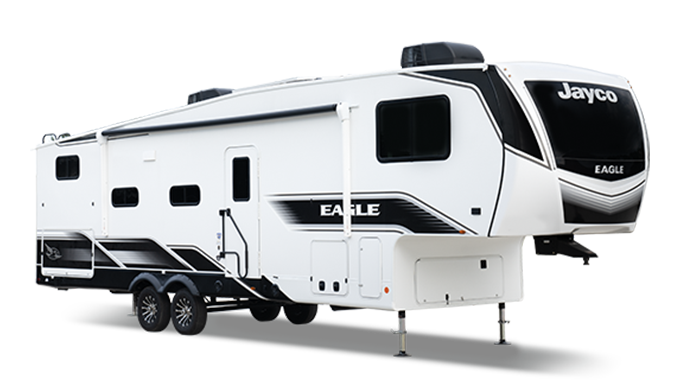
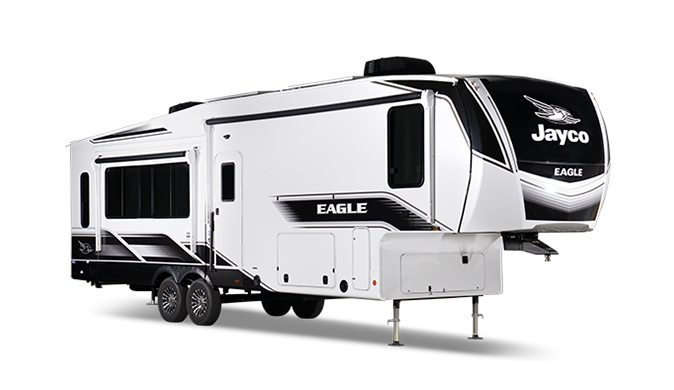
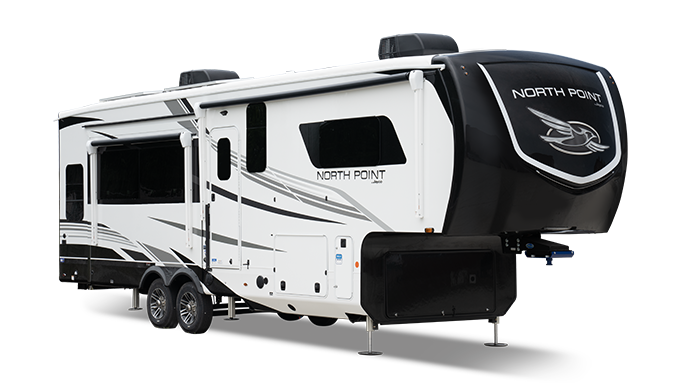
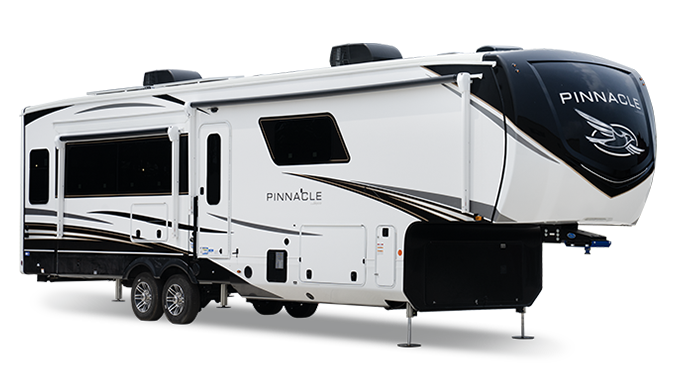
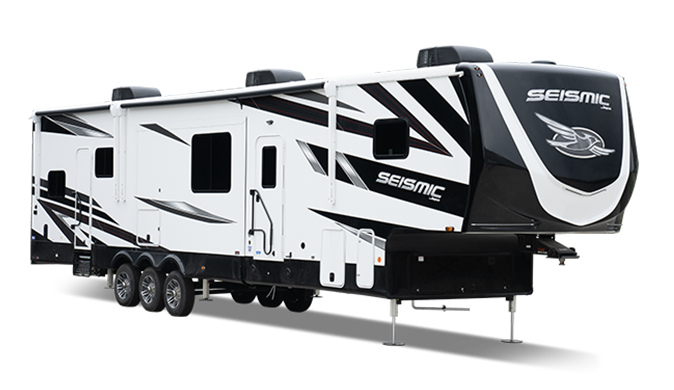
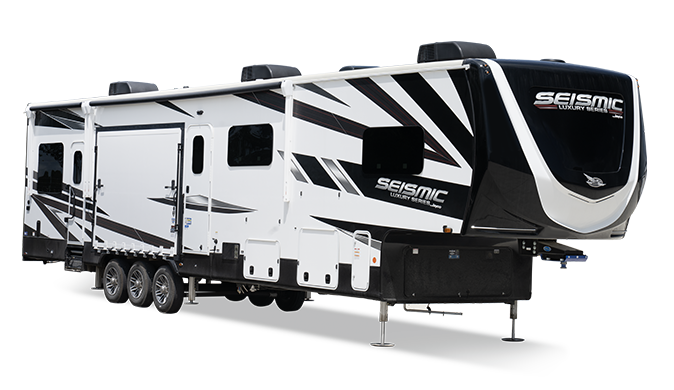
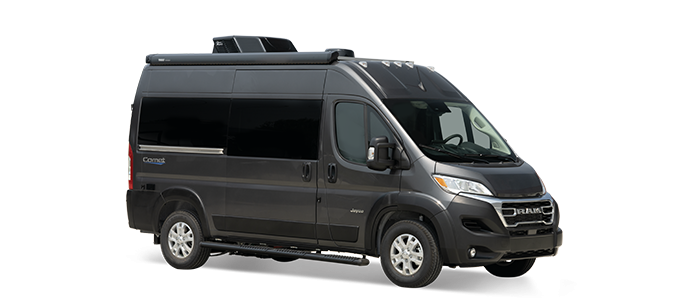
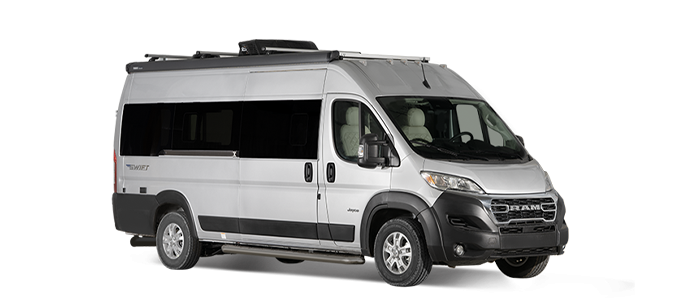
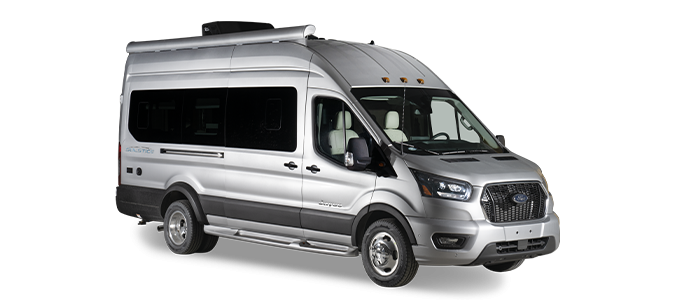
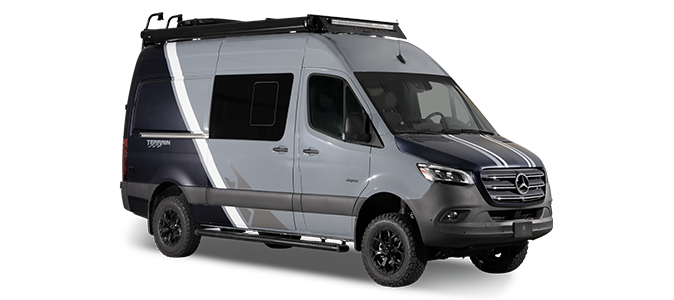
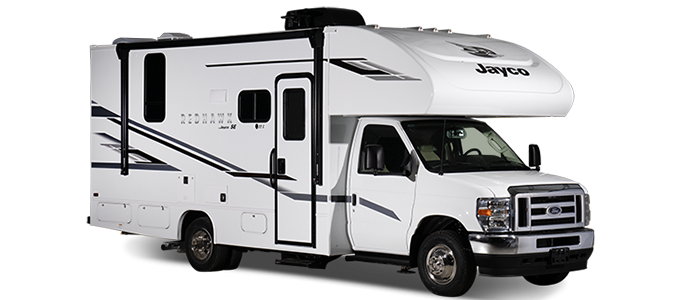
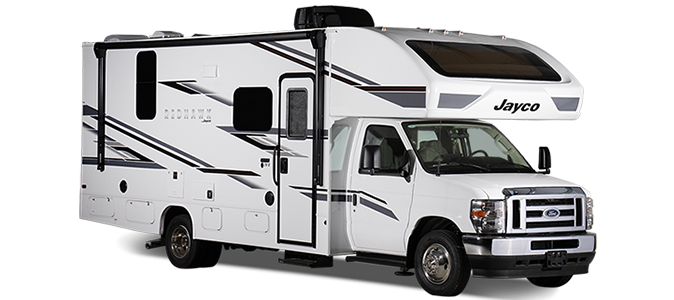
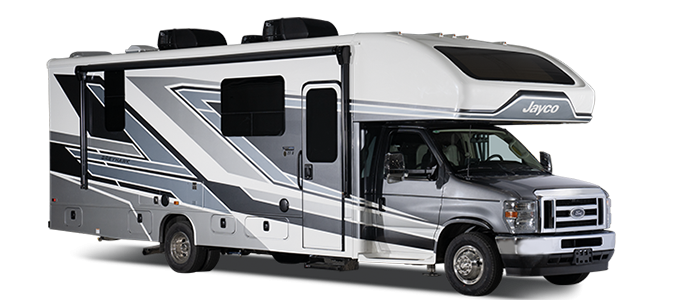
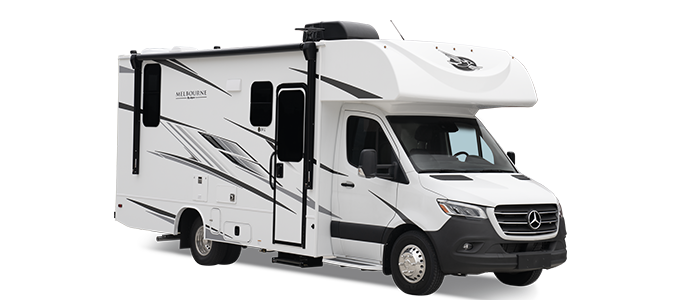
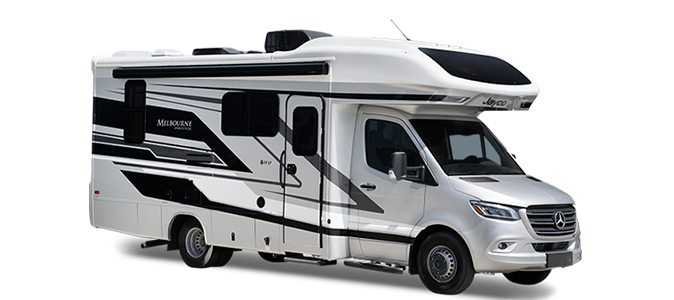
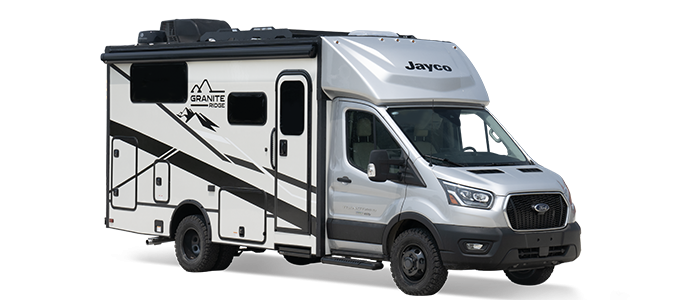
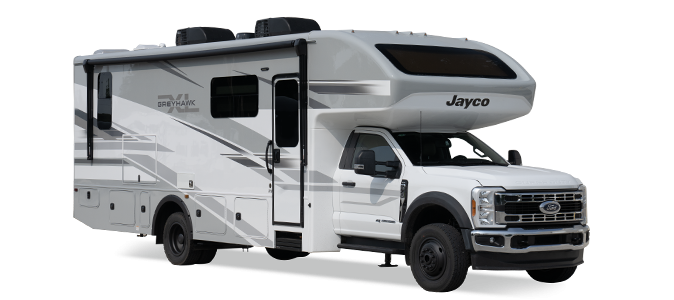
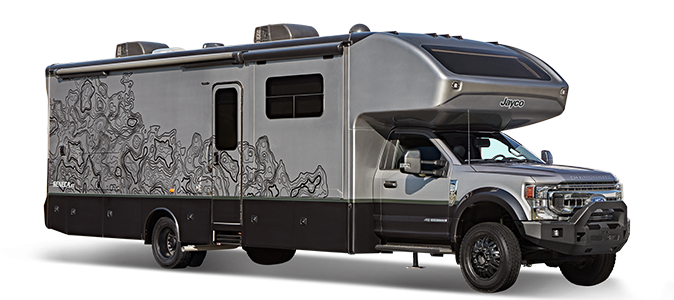
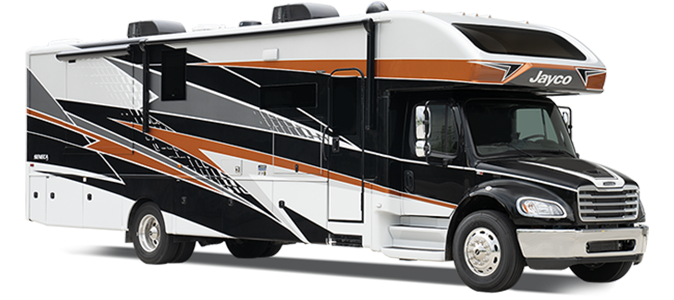
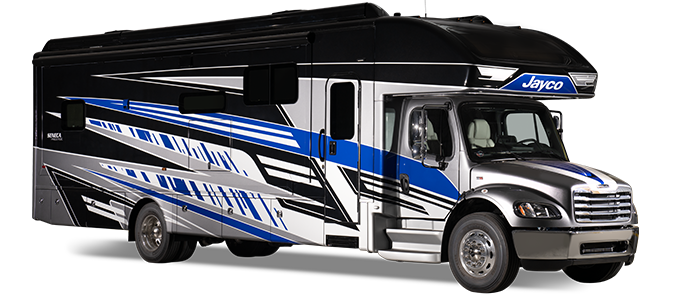
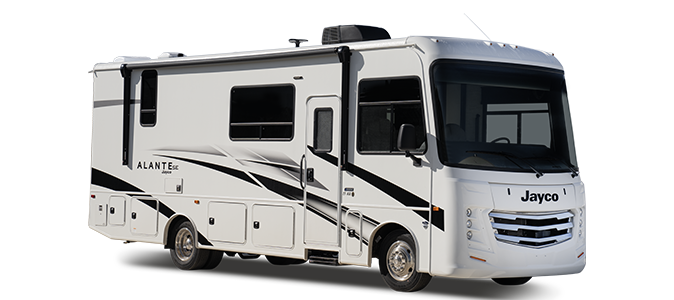
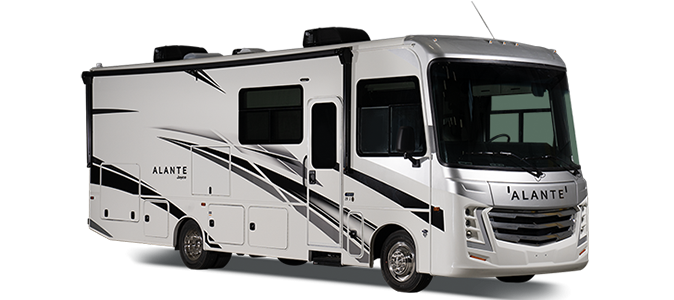
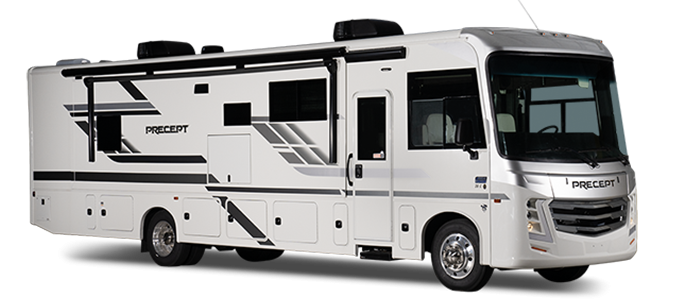
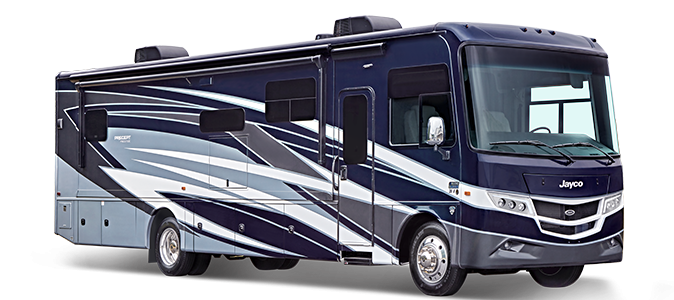
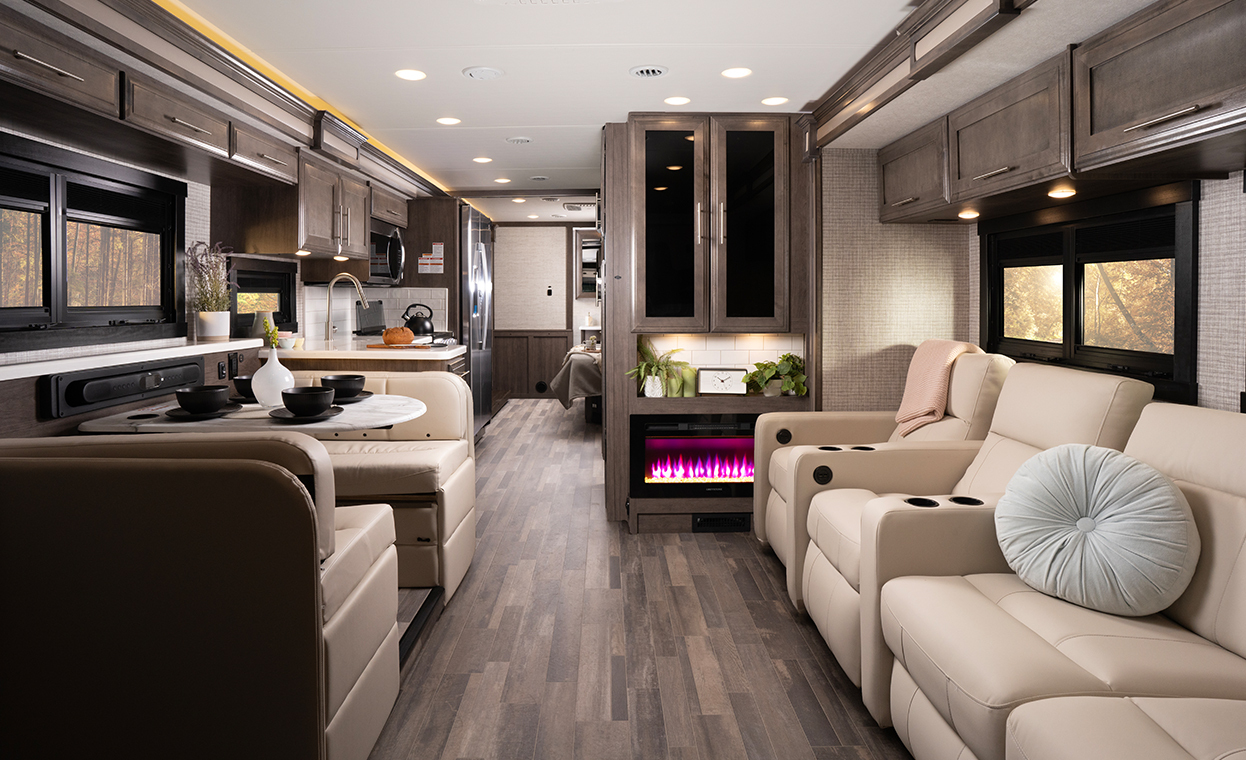
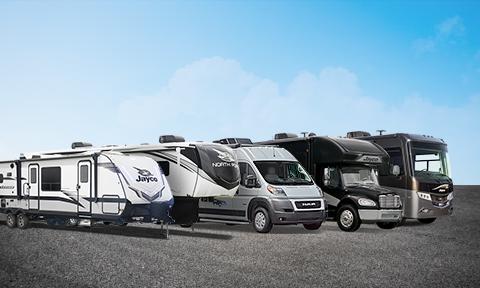
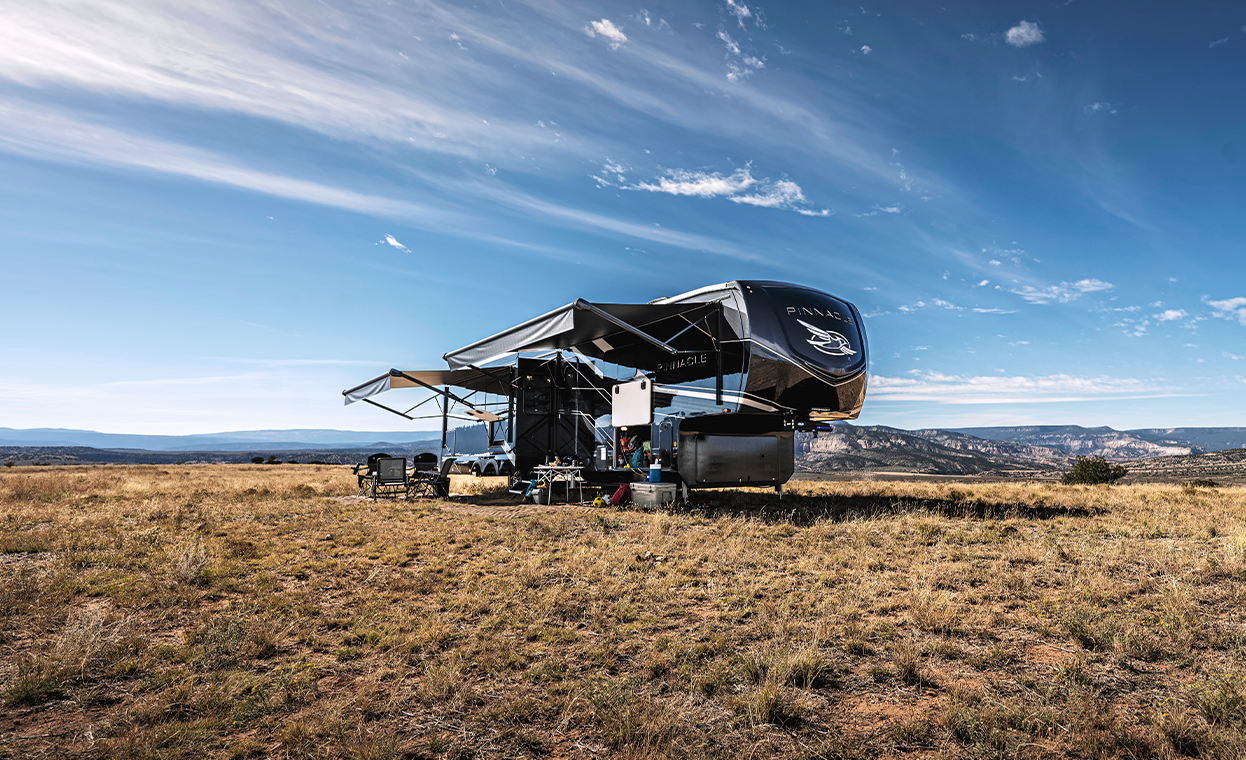
.png)
